26 Authentic Tips on How to Win Google Science Fair
The Google science fair is one of the biggest science fairs in the world today. It’s an online competition established and sponsored by Google – including Lego, Virgin Galactic, National Geographic and Scientific American.
For those interested in tips on how to win the competition, I’ve compiled some from the previous winners and judges of the competition.
First off:
I’ll start with the basic tips. The first is:
Be 13-18 years of age
This is one of the requirements to join the Google Science fair competition.
Note: If you turned 19 after the start of the competition, do not worry, you will not be disqualified.
Have access to a 24/7 internet connection
You need a 24-hours access to an internet connection 7 days a week.
This would help keep you updated and connected with what’s going on with respect to the competition.
Get a free Google Account
You would not be able to submit your work or signup for the competition if you do not have a Google Account.
Don’t be a resident of any US-sanctioned country / region
Examples of countries sanctioned by the United States of America include: Cuba, Iran, North Korea, Sudan, Myanmar/Burma, Syria, and Zimbabwe.
Seek your parental or guardian consent
This is very important, especially when it comes to signing travel documents for finalists, etc.
Know how the competition is judged
This would give you a focus on how to present your project. Entries are judged on 8 core criterias, which include the student’s:
- Presentation
- Question
- Hypothesis
- Research
- Experiment
- Data
- Observations
Organize yourself
Plan your daily activities.
Get a lab-note to jot your thought processes, notes, procedures, etc.
Get all your materials ready for work (experimentation, presentation, etc).
Choose your topic/ project…carefully
When choosing a project or topic, don’t do it in a rush, do it wisely.
Decide if you need a team
Working in a team has its own advantages and disadvantages.
If you are better off working alone, then work alone. Otherwise, be sure to find a good team.
Do your background check
Do not just rely on what I’ve written on Larnedu about the Google Science fair.
Head to the official website and do your homework. You may find something that I have not mentioned or talked about in regards to the competition.
Study important theories
You may need them during your research, interviews, or presentation.
Keep notes of the important dates
Here are some important dates you should note:
- 19th May (8:59 BST)-submission deadline.
- 7th July 2015(18:01 BST)-Regional finalists would be announced.
- 8th August 2015 global finalists announced (09:01 BST)
Check your copyright use
Do not use a video, picture, or audio you do not have the right to use. Doing so could get you disqualified.
Seek legitimate help where needed
When stuck, you can always consult your teacher, experts, etc., for explanation or guidance.
Organize your work
Make it:
- Presentable.
- Engaging.
- Interesting.
Use an approved language for your final submission
Your final submission should be in English, German, Italian, Spanish, or French.
Submit your project on time
Do not forget 19th May (8:59 BST) is the last day for submission.
Don’t violate anyone’s privacy
Your project or presentation shouldn’t contain anything that will violate anyone’s privacy.
You should make sure you don’t say anything that will violate anyone’s privacy in your interviews, presentations, or debates.
Find a mentor
You’re not allowed to seek much help from a mentor. But your mentor can help you arrange your research like a scientist.
Let’s move to tips from Google Science past judges and winners on how to win the competition.
Steve Myers: Google Science Fair 2013 judge.
Patricia Bath: Google Science Fair 2013 judge.
Shree Bose: Winner of the first ever Google Science Fair.
Start preparing early
I believe this would give you a good time to complete your project. You would be in less pressure to meet deadlines.
If you have a good idea, start working on it right away, as soon as you can. Get as much information as you can about what has been done before.– Steve Myers.
Prepare an original work
There’s always a danger in these competitions that if you have a very smart engineer or mathematician of a mother or father, they can steer you. It is very difficult to ascertain where the original idea came from. I think Google is checking that much, much more rigorously now.- Steve Myers
Confidence
There were some kids there from Africa. They were so nervous, they could barely speak. The American kids were full of confidence. I think that gives an imbalance to the judging. American schools teach kids to present your ideas, which schools in countries like Spain, etc. don’t. The difference does come out very, very strongly.- Steve Myers
Confidence is definitely one of the important skill sets you need to win the Google science fair competition. It would:
- Make you believe that you have a chance at winning the Google Science fair, thereby enabling you to work better.
- Give you the zeal to communicate effectively.
- Help you to impress interviewers.
Be unique
Don’t submit something that already exists.
…there are many things which are well-known truths and proving some of those things is not original. Sometimes people are not trying to cheat or anything like that, but they don’t realize that what they’re doing is proving a very old law of physics, like Newton’s laws. What they should rather do is talk to their physics teacher or their math teacher or someone to make sure they’re not going along the wrong path.
Kids nowadays have so much information available to them, they can find things very quickly. It used to take years to do a proper literature search. You had to go to the library because there was no Internet. You had to spend a large part of the day in the library just searching.- Steve Myers.
Follow your passion
The best advice I can actually give would be to pick a topic that you really love. The projects that come from a really personal place can often be the projects that you will work the hardest. For me, it was my grandfather passing away of cancer, but I think everyone has something that fascinates them, and those make for the best projects. Passion comes through.-Shree Bose.
If you are passionate about your project, it’ll reflect in all you do.
Have fun
At the final stages of the competition, Shree Bose taught of the competition as a way to meet other finalists and to show what she was working on. This helped her to relax.
Use the scientific method
I think the process is going to educate them about how to conduct scientific research. You don’t just begin the experiment. You think about it. You plan it, you design it and then you use the scientific method.–Patricia Bath.
Finally:
Try again even if you were not selected
This is allowed so far you’re in accordance to the rules.
Don’t be discouraged by your previous performance in the competitions. Winners never quit.
Good luck!




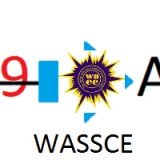

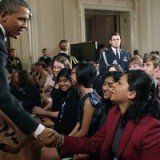
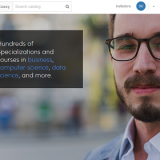

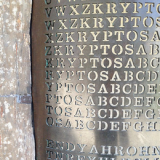



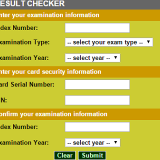
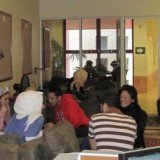
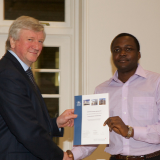
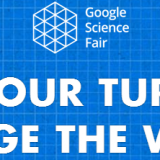

Great tips!